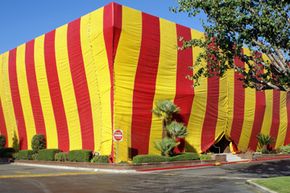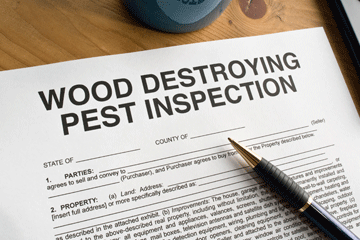Key Takeaways
- Termite inspections are crucial when you're buying a home to avoid inheriting serious infestations.
- Inspections often reveal subtle signs of termite activity because termites consume wood from the inside, making their detection difficult without professional help.
- You might be able to negotiate effective treatments and repairs as part of the home purchase, and many lenders require these inspections before approving a mortgage.
Termites are nasty customers. They're almost invisible, completely silent and have the potential to cause extensive damage before a homeowner ever recognizes he or she has a problem. Just uttering the word "termite" can make some homeowners shudder, and for good reason. Termites are active in 49 of the 50 states (Alaska is too cold to sustain them), and cause more than $50 billion in property damage every year.
If you're buying a home, having the dwelling inspected for termites beforehand can save you headaches later. Actually, if you're taking out a mortgage, there's a good chance the lender will require that you have a termite inspection (as well as a general home inspection) performed before the sale is finalized.
Advertisement
A termite inspection is typically an expense borne by the buyer, but it's worth the price. Most home purchase agreements are contingent on the results of independent inspections like termite inspections designed to reveal hidden problems and dangers:
- Termites eat wood from the inside out. That means they leave very little evidence of their presence until an infestation is pretty far along. Because the warning signs can be subtle, it will probably take an expert to recognize them.
- A large termite colony feasting on the wood in a home can consume a pound of cellulose a day but it's usually much less. That can lead to structural damage you won't want to deal with. The presence of termites doesn't necessarily mean a home is unsound, though, especially if the infestation is relatively recent. An expert will know the difference.
- A termite inspector can help decipher more than just the warning signs of termites. Most inspectors are trained to recognize the presence of other wood-destroying pests like carpenter ants, too.
If an inspection does reveal termite activity, it might not all be bad news. The signs may be leftover from a previous infestation that has already been dealt with. A qualified termite inspector will recognize the difference between current and past termite activity and provide a guarantee or written statement to that effect. If the home has been treated for termites, the seller should also be able to provide documentation of past termite treatment and any structural repairs that have been made (or may be needed) to fix termite damage.
If there's current termite activity on the property, it still might not be a deal breaker. In some areas of the country, termites are so prevalent that having had a minor problem with them isn't all that uncommon. If an inspection reveals that termites are present but the infestation is minor, and the seller is willing to have the home treated for termites at his or her expense and pay for repairs, the property may still be worth considering. This is one instance where it pays to get expert advice about the condition of the home and discuss the options with your attorney.
Advertisement



